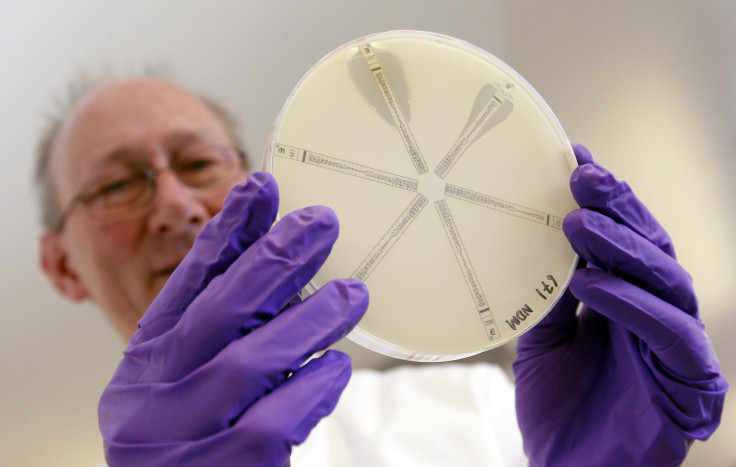Antibiotic Use In Infants Linked To Adult Disease

Overuse of antibiotics in infants might affect the development of gut bacteria essential for the formation of immune system in them, claim researchers from the University of Minnesota through their new study. The new study, led by Biomedical Informatics and Computational Biology program graduate student fellow Pajau Vangay, has found a three-way link among antibiotic use in infants, changes in the gut bacteria and disease later in life. It also indicates that the imbalance created in the microbial flora of the gut, called dysbiosis, might lead to infectious diseases, allergies and other autoimmune disorders, and even obesity, later in life.
The study team, which reports their findings in the scientific journal Cell Host & Microbe, has come up with a predictive model which has a potential to measure the development of healthy gut microbial flora in young children, hence holds clinical importance. Antibiotics, the most commonly prescribed medication among children, accounts for about one-fourth of all medications prescribed, with a third of these prescriptions rendered as unnecessary. With tremendous rise in antimicrobial drug-resistant strains causing havoc, the matter has now become a cause of great public health concern.
There are studies in the past which have shown profound short- and long-term effects of antibiotics on the diversity and composition of the bacteria in our bodies, called our microbiome. The study's senior author, Dan Knights, a computational biologist and assistant professor in the University of Minnesota's Department of Computer Science and Engineering and Biotechnology Institute, says, “Diseases related to metabolism and the immune system are increasing dramatically, and in many cases we don't know why. Previous studies showed links between antibiotic use and unbalanced gut bacteria, and others showed links between unbalanced gut bacteria and adult disease. Over the past year we synthesized hundreds of studies and found evidence of strong correlations between antibiotic use, changes in gut bacteria, and disease in adulthood”.
To map how the use of antibiotics may be affecting the microbiome in the gut that leads to disease later in life, Knights and his colleagues developed a framework which states that the use of antibiotics to treat allergies may eradicate key gut bacteria that help immune cells mature. These cells might prove to be the key at keeping the allergens at bay for future references. Antibiotic-induced changes in the gut microbiota resulted in increased levels of short-chain fatty acids that affect metabolism, hence related with obesity.
The study also examined the development of bacteria in the gut and was able to demonstrate that an infant's age could be predicted within 1.3 months based on the maturity of their gut bacteria. Knights concludes by saying, "We think these findings help develop a roadmap for future research to determine the health consequences of antibiotic use and for recommendations for prescribing them," Knights said. "The clinical test we demonstrated would also allow us to think about interventions at an early age."
To contact the writer, email:ruchira.dhoke@gmail.com




















